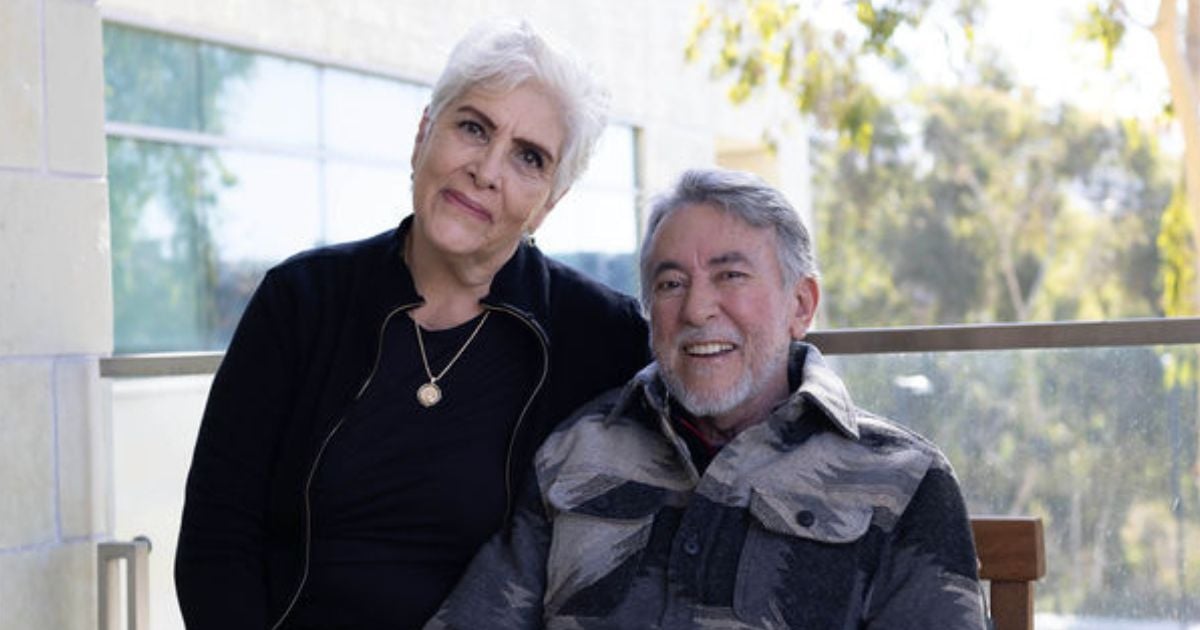Salivary Gland Cancer
If you have a rare cancer like salivary gland cancer, you need doctors who have experience treating this rare condition.
Nationally Ranked Cancer Care
UC San Diego Health is ranked among the top 50 in the nation for cancer care and ear, nose and throat care by U.S. News & World Report. We're also the only National Cancer Institute (NCI)-designated Comprehensive Cancer Center in San Diego County. This is the highest possible rating for a U.S. cancer center, and it means you'll receive the best possible care and support. Studies show patient outcomes are better at NCI-designated cancer centers.
Expertise in Salivary Gland Cancer
You’ll find support and expertise from your care team at every step of your journey, from diagnosis to rehabilitation following treatment.
- Experienced oncologists to ensure an accurate diagnosis
- Personalized treatments with state-of-the-art genetic tumor testing
- Dedicated head and neck surgeons with extensive experience in minimally invasive robotic and laser surgeries to minimize scarring
- A head and neck care team with experts in speech pathology and rehabilitation
- All the supportive services of a world-class cancer center, including nutrition advice, support groups, and mind/body wellness classes.
When Should I See a Doctor?
If you feel a lump or swelling in your mouth, cheek, jaw, or neck, especially one that is growing or causing pain or numbness, you should see a doctor. Despite being a rare cancer, there are many types of salivary gland tumors, including benign tumors as well as low-risk and aggressive cancers.
Diagnosing Salivary Gland Cancer
Your oncologist will perform a physical exam of your jaw, mouth and neck to feel for lumps and tenderness. You may have an imagining test, such as MRI or CT scan, or a biopsy to diagnose your condition.
Treatment for Salivary Gland Cancer
We work with you to develop a care plan that's right for you. This may include:
- Surgery — Surgical removal of the cancer is the most common first treatment for salivary gland cancer. Our head and neck surgical oncologists are skilled at minimizing cosmetic and functional issues resulting from surgery.
- Radiation therapy — Radiation therapy is often used after surgery to kill any remaining cancer cells. If your tumor is inoperable, you may be treated with radiation alone.
- Chemotherapy — Systemic anti-cancer drugs may be administered if your cancer has spread.
Head and Neck Cancer Center Leaders
Head & Neck Cancer Care Team
We collaborate with you to deliver world-class care in a caring, supportive environment. Your care team may include surgeons, medical oncologists, radiation oncologists, nurses, dietitians, social workers, radiologists, rehabilitation therapists, and speech and language therapists, or other physicians and professionals for your personal care plan.
Second Opinion Services
When you have a diagnosis as serious as cancer, you deserve a second opinion on your treatment options.
Clinical Trials
Advancing Cancer Care and Prevention
UC San Diego Health physicians are actively researching ways to improve cancer care. By joining a clinical trial, you may receive a new cancer treatment before it is available to the public. If your cancer has not responded to standard therapies, talk to your doctor about whether a clinical trial could be right for you.
Patient & Family Supportive Services
At UC San Diego Health, your care goes beyond treating disease. It also includes supporting you and your loved ones emotionally during your cancer journey. Most of our support services are free.




